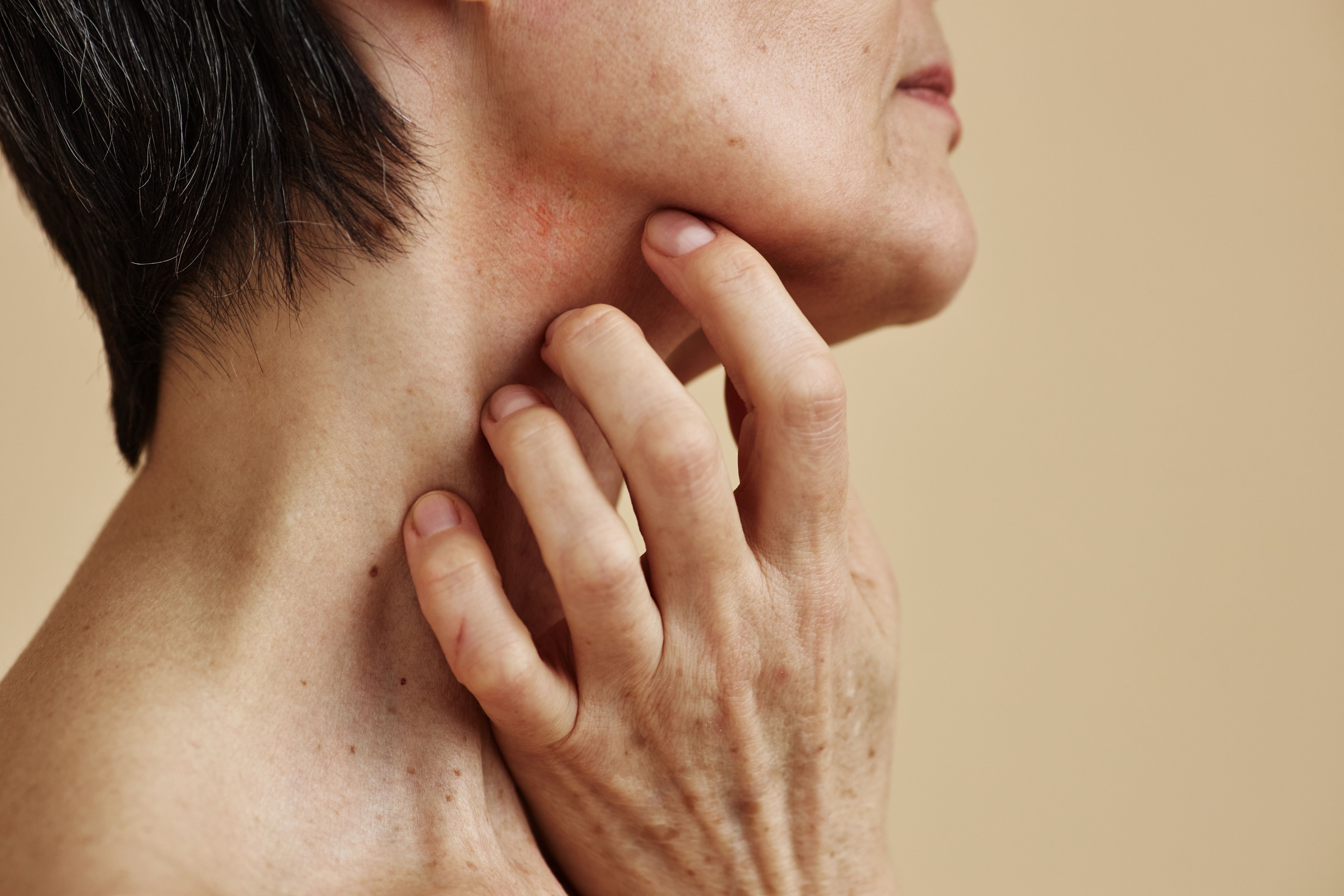- Case-Based Roundtable
- General Dermatology
- Eczema
- Chronic Hand Eczema
- Alopecia
- Aesthetics
- Vitiligo
- COVID-19
- Actinic Keratosis
- Precision Medicine and Biologics
- Rare Disease
- Wound Care
- Rosacea
- Psoriasis
- Psoriatic Arthritis
- Atopic Dermatitis
- Melasma
- NP and PA
- Skin Cancer
- Hidradenitis Suppurativa
- Drug Watch
- Pigmentary Disorders
- Acne
- Pediatric Dermatology
- Practice Management
- Prurigo Nodularis
- Buy-and-Bill
News
Article
2 Years of Treatment With Dupilumab Led to Improvements In Symptoms of AD and Comorbid Anxiety, Depression
Author(s):
Following treatment, 17.5% and 13% of patients reported residual depressive and anxiety symptoms.
After 2 years of treatment with dupilumab (Dupixent; Regeneron and Sanofi), patients with atopic dermatitis (AD) reported improvements in their symptoms as well as improvements in comorbid depression and anxiety, according to a study published in the Journal of Clinical Medicine.1
In total, 17.5% of patients reported residual depression symptoms, while 13% of patients reported residual symptoms of anxiety following treatment. Reductions in symptoms of psychiatric distress and clinical signs of AD were significant in nature.
Background and Methods
Citing the frequent manifestation of psychiatric disorders and comorbid conditions in patients with AD, including attention deficit/hyperactivity disorder, autism spectrum disorder, anxiety disorders, mood disorders, and more,2 researchers sought to explore the role of long-term (24 months) treatment with dupilumab on psychiatric conditions and mental well-being in individuals with AD.
Prior to the current study, researchers Ferrucci et al conducted research wherein they found that at least 1 year of treatment with dupilumab treatment led to significant decreases in anxiety and depressive disorders among patients.3
The study followed patients (n=331) with moderate to severe AD who had followed up with clinicians at a dermatology outpatient clinic in Milan, Italy, and who had completed 2 years of treatment with dupilumab. Individuals who were pregnant or unable to consent to participation were excluded from the study. Additionally, individuals with medical conditions that could hinder treatment tolerability were deemed unable to participate.
At baseline, researchers collected age, body mass index, gender, and disease-specific data, assessing illness severity and affective symptoms. The Hospital Anxiety and Depression Scale, Patient-Oriented Eczema Measure, Dermatology Life Quality Index, Sleep Quality Numeric Rating Scale, Itch Numerical Rating Scale, Physician Global Assessment, Eczema Area and Severity Index, and the Atopic Dermatitis Control Tool scales, as well as total plasma immunoglobulin E (IgE) levels, were measured at baseline and months 1, 4, 8, 12, 16, and 20.
Findings
The baseline characteristics of the participants included an average age of 37.03 years, with an onset of AD at 11.12 years. The majority were males (55.3%) with extrinsic type AD (90.6%). Most patients had received previous systemic treatments for AD, with cyclosporine being the most common (17.5%). Only a small proportion of patients had received psychiatric care or treatments for anxiety or depression at the start of dupilumab treatment.
The study measured various clinical variables at baseline and after 24 months of dupilumab treatment, including rating scale scores related to AD severity, anxiety, and depression, as well as serum IgE levels.
The results showed significant improvements in all measured parameters after 24 months of treatment.
Adverse events related to dupilumab treatment were reported, including eosinophilia, conjunctivitis, headache, oral herpes, and molluscum contagiosum. However, these events were mostly mild to moderate, and treatment discontinuation was not necessary.
The study also investigated factors associated with the persistence of depressive and anxiety symptoms after 24 months of treatment. Higher baseline body mass index, lower impact of dermatological disease on quality of life, and more severe baseline depressive symptoms were associated with the persistence of depressive symptoms. Female gender was the only factor associated with the persistence of anxiety symptoms.
Conclusions
According to researchers, these findings confirm that of existing literature on the subject of long-term treatment with dupilumab and amelioration of clinical aspects of AD.
Limitations of this study, as indicated by researchers, include the study's lack of randomization and of a control group, as well as the context of the COVID-19 pandemic and the potential for existing medical and psychiatric comorbidities which may have impacted the mental health status of participants.
Further randomized controlled studies of a larger nature, including multi-centric samples of patients, are warranted, researchers noted. Future studies may benefit from the comparison of patients with anxiety or mood disorders who either have or do not have comorbid conditions. Such comparison might also be beneficial when comparing the use of immune modulators versus Selective Serotonin Reuptake Inhibitors, for example.
"Dupilumab ameliorates affective symptoms in patients affected by AD, but dermatologists should take special care of patients that can experience the negative effects of persistent psychiatric symptoms, such as women with overweight/obesity or subjects with severe depressive symptoms at the initiation of therapy," wrote Ferrucci et al. "These findings imply that for specifics group of patients with AD, strict collaboration between the dermatologist and mental health professionals is needed to optimize treatment."
References
- Ferrucci SM, Tavecchio S, Ceresa A, et al. Which factors are associated with persistence of depressive and anxiety symptoms in patients affected by atopic dermatitis despite 2-year treatment with dupilumab?. J Clin Med. 2024;13(7):1980. March 29, 2024. doi:10.3390/jcm13071980
- Radtke S, Grossberg AL, Wan J. Mental health comorbidity in youth with atopic dermatitis: A narrative review of possible mechanisms. Pediatr. Dermatol. 2023;40:977–982. doi: 10.1111/pde.15410
- Ferrucci SM, Tavecchio S, Nicolini G, et al. Mental health in patients affected by atopic dermatitis: Which effects of treatment with dupilumab? Int. Clin. Psychopharmacol. 2023;39:201–205. doi: 10.1097/YIC.0000000000000511.






